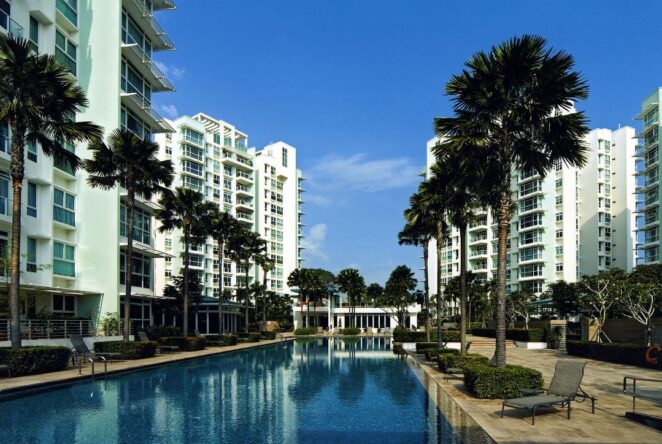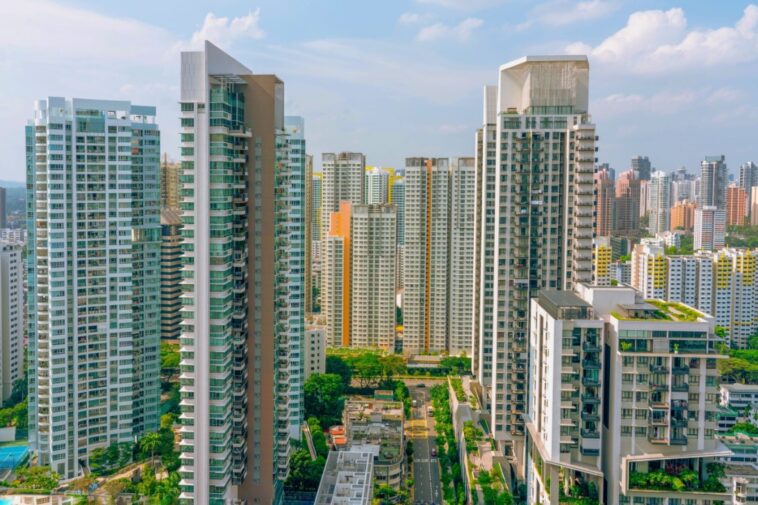Navigating the sparkling waters of Singapore’s real estate market as a foreign buyer is akin to embarking on a thrilling voyage across uncharted seas.
You’re eager to claim your slice of this urban paradise but let’s face it, the regulatory environment can sometimes feel like you’re trying to read an ancient map without a compass.
Fear not, intrepid explorer, for this guide will illuminate the path forward, sparing you from the metaphorical scurvy of legal confusion.
The Lay of the Land
Singapore, a gleaming metropolis, is more than just a dot on the map—it’s a hotbed of multiculturalism, economic prosperity, and, you guessed it, stringent real estate regulations.
Before you dive into the deep end and start signing cheques, it’s paramount to understand that the Singapore government, much like an overprotective parent, has put in place a labyrinth of rules to ensure the local housing market remains as balanced as a feng shui master’s living room. Check out Emerald of Katong to find out more!
The ABSD ─ Not Your Average Dance Move

At the forefront of these regulations is the Additional Buyer’s Stamp Duty (ABSD). The ABSD isn’t a move you pull at the club, but rather a tax imposed on buyers, akin to being asked to pay cover at said club, but this time for the privilege of entering the real estate market.
The rates vary, with foreigners generally paying higher than locals because, in the eyes of the law, you’re still at the “acquaintance” stage of your relationship with Singapore.
Landed Property ─ The Forbidden Fruit
Landed properties in Singapore are like that exclusive club everyone wants to get into but only a few have the golden ticket. As a foreigner, you’re basically at the back of the queue, looking in with puppy eyes.
Buying landed property is mostly off-limits, reserved for the locals and those who’ve managed to win the government’s favor through significant contributions to the economy or society. Think of it as needing a VIP pass or a knight’s title to enter the castle grounds.
Sentosa Cove ─ The Exception to the Rule
Now, if you’ve set your heart on a landed property and can’t shake the dream, there’s a loophole: Sentosa Cove. This is where the government has relaxed the reins a bit, allowing foreigners to own a piece of this waterfront heaven.
But beware, the prices here can make even the wealthiest of oligarchs blink twice. Buying property in Sentosa Cove is like purchasing a luxury yacht—you don’t just worry about the upfront cost; you also need to consider if you can afford to keep it afloat.
Condominiums ─ Your Best Bet

For the average foreign investor, condominiums are your safest bet. They’re like the friend who’s always there for you—reliable, less complicated, and significantly easier to commit to.
The process is more straightforward, and you won’t have to court the government for approval. Plus, condominiums in Singapore come with perks like swimming pools, gyms, and security that would make Fort Knox envious.
The Stamp Duty Saga
Ah, the Stamp Duty—another joy of purchasing property in Singapore. This is where you realize that every document you sign comes with a little “gift” for the government. It’s like tipping at a restaurant, except it’s not optional, and the percentages are set by the state.
The Buyer’s Stamp Duty (BSD) applies to everyone, but as a foreigner, you also get hit with the ABSD, making it feel like you’re buying your property in a high-end boutique rather than a market.
The Rental Game
Maybe you’re not ready to tie the knot with a property but still want to play the field. Renting out properties can be an attractive option for foreign investors, offering a way to generate income.
However, don the hat of a landlord in Singapore, and you’ll find yourself dancing to a new tune—regulations governing tenancy agreements, maintenance responsibilities, and tenant rights. It’s like hosting a dinner party but having to ensure every guest’s dietary preferences are met—doable, but it requires some fine setting.
The Financing Voyage

Navigating the choppy waters of financing your real estate purchase in Singapore can feel like trying to solve a Rubik’s cube blindfolded—complicated at first, but possible with some guidance. As a foreign investor, banks will look at you with the same caution as a cat meeting a new person.
Loan-to-Value (LTV) ratios for foreigners are more conservative, meaning you’ll need to fork out a larger down payment. Imagine trying to buy a fancy dinner but being told you need to pay 80% upfront because you’re not a regular. That’s your LTV ratio in a nutshell.
Navigating the Legal Maze
Embarking on this journey without a legal compass is like trying to navigate the Amazon with a map of New York. Engaging a good solicitor can save you from many potential pitfalls, from understanding the intricate leasehold terms that might have more catches than a fisherman’s net to deciphering the legal jargon that could otherwise leave you more baffled than a penguin in the Sahara.
Charting Your Course
Embarking on your property acquisition journey in Singapore requires preparation, a bit of courage, and a sense of humor. The regulatory seascape is complex, but with a good navigator (a.k.a. a reputable property agent), you can steer clear of the reefs.
Remember, investing in real estate here is not just about finding a place to hang your hat; it’s about understanding the nuances of the market, respecting the laws, and occasionally laughing at the absurdity of it all.
In conclusion, buying real estate in Singapore as a foreigner is akin to joining an exclusive club. The membership fees (read: taxes and duties) are steep, and the rules can be byzantine, but the rewards—a piece of one of the most dynamic cities in the world—are undeniable.
So, polish your compass, set your sails, and may the regulatory winds be ever in your favor. Just remember, when in doubt, a little laughter can go a long way in lightening the load.



